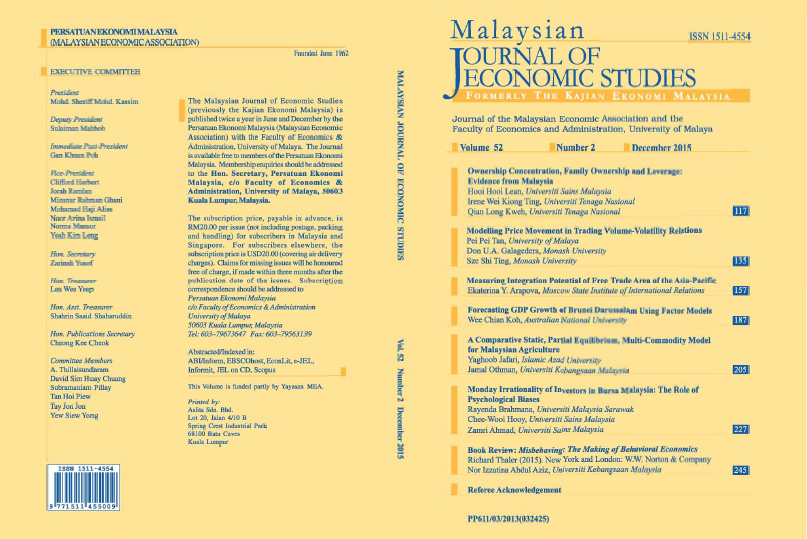Ownership Concentration, Family Ownership and Leverage: Evidence from Malaysia
Keywords:
Family ownership, leverage, Malaysia, moderating effect, ownership concentrationAbstract
This is the first study that empirically examines the impact of ownership concentration as a main independent variable on leverage decision for Malaysian firms. Multiple regression models with balanced panel data are employed to examine the impact of ownership concentration on a firm's leverage decision. We also make the first attempt to test the moderating effect of family ownership on the relationship of ownership concentration and leverage decision. We conclude that (1) the higher the shareholdings by the top shareholders, the lower the leverage; (2) family companies have lower leverage than non-family companies; (3) the negative effect of ownership concentration on leverage is smaller in family companies than in non-family companies. The research implications are risk aversion pushes firms towards lower debt but the risk of losing control of family members would lead them to employ high debt. Practically, we suggest that risk averse investors could invest in firms with a higher degree of family ownership when there is a higher degree of concentrated ownership.

